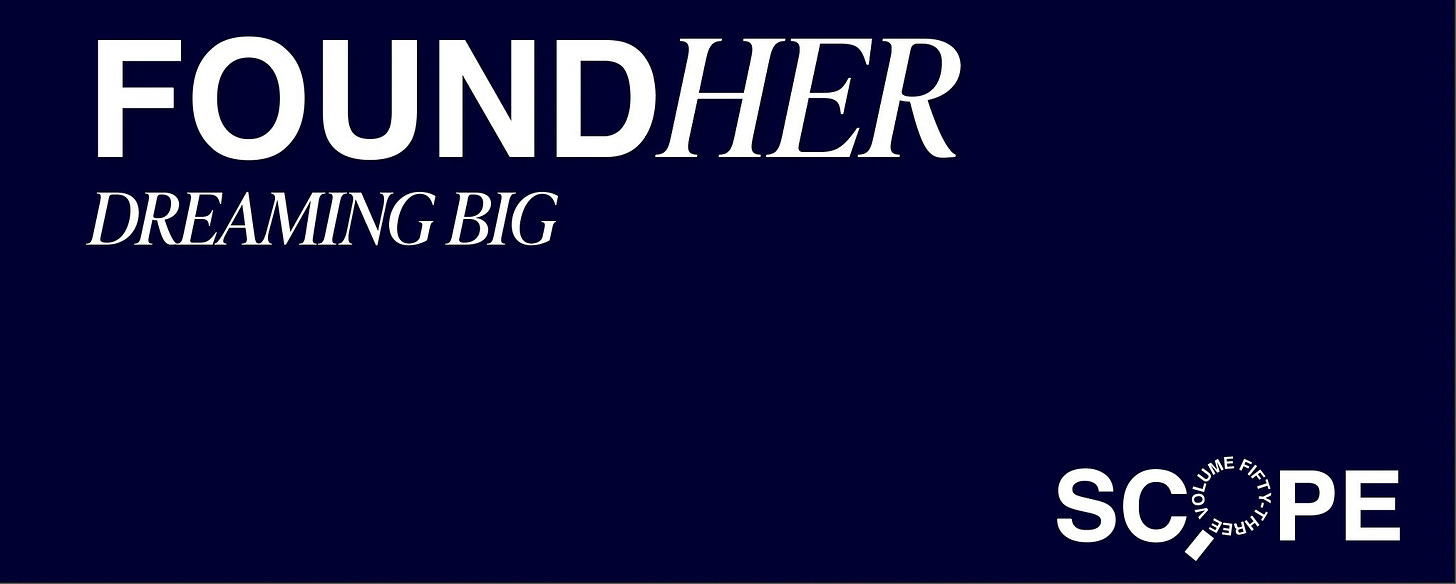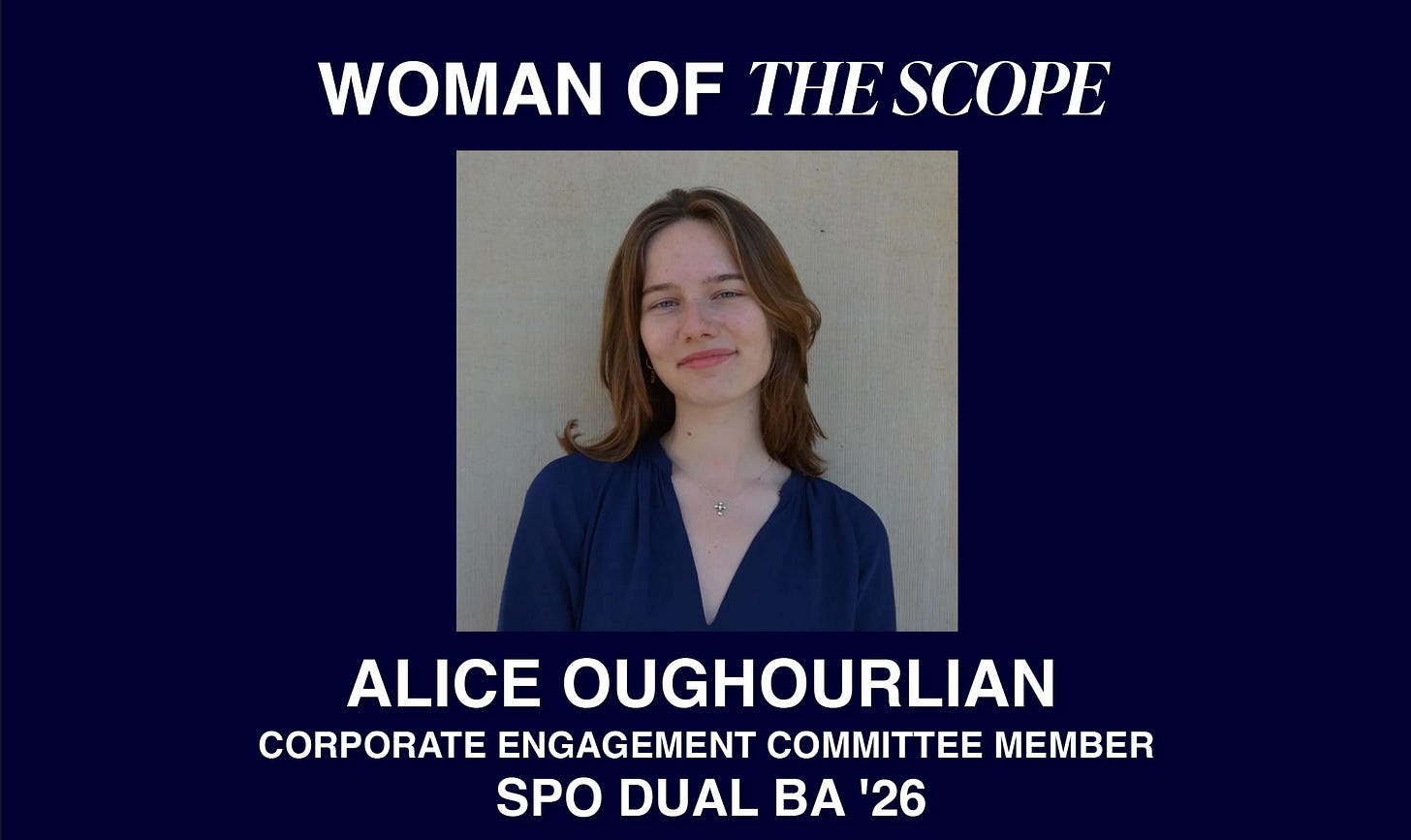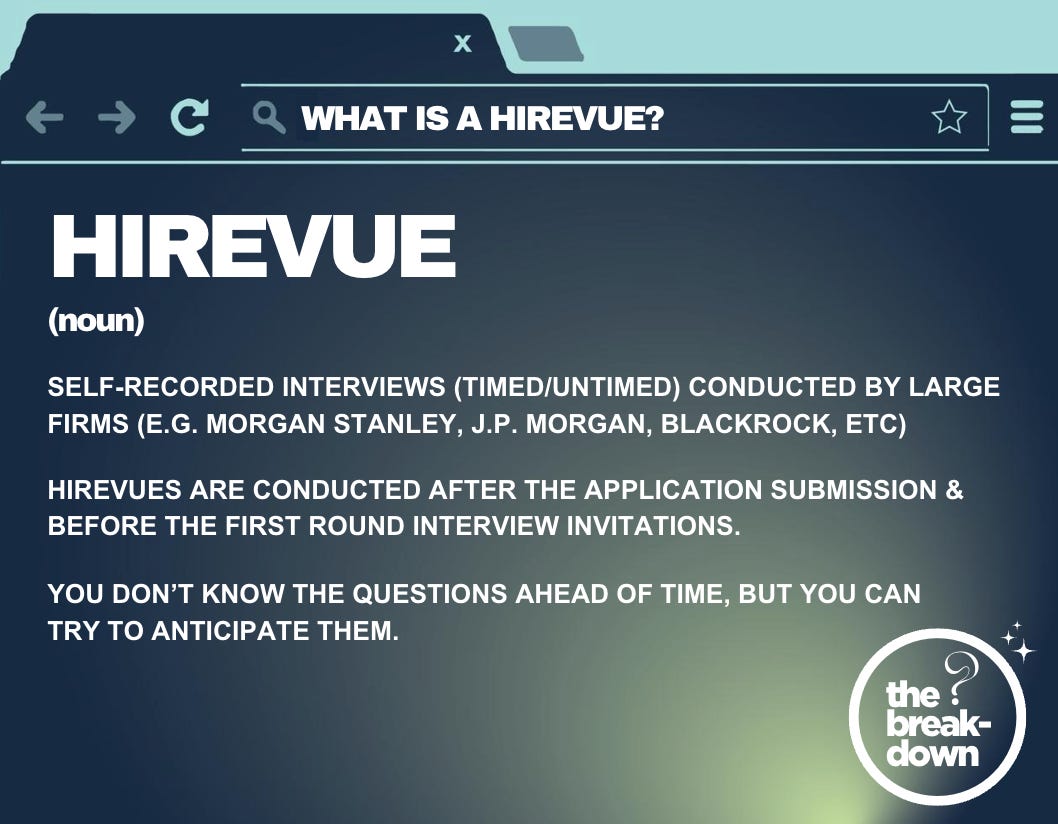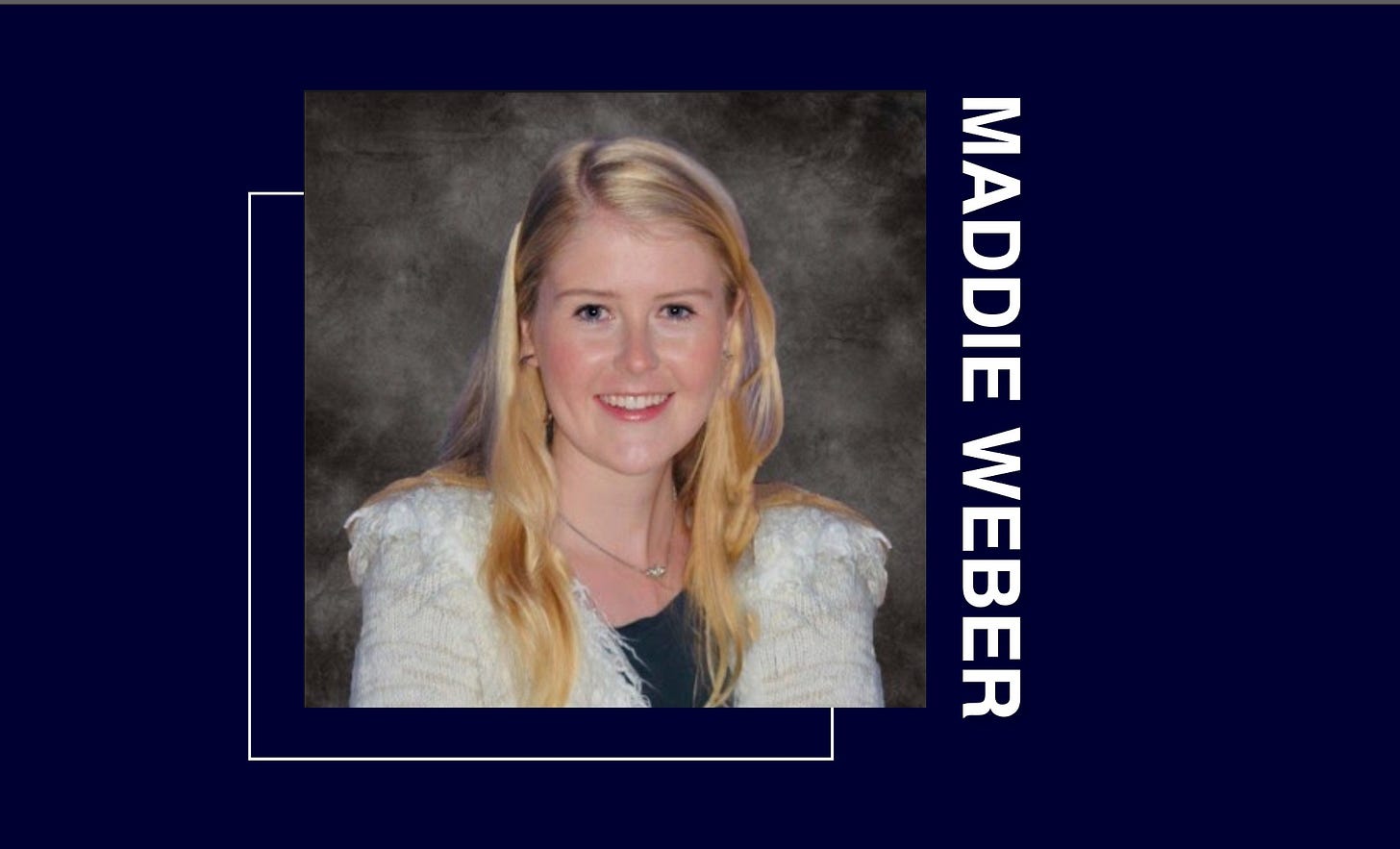FoundHER Dreaming Big🪡 🛌🧵🩵
Hello CWBS,
Happy December! We hope everyone had a restful break! We are super excited to share this month’s issue of The Scope featuring Maddie Weber the co-founder of Sleepy Saturday, a pajama company centered around community and small business-based designs. In addition, we are excited to share this year’s second podcast featuring Niamh O'Brien and Jazmin Lesane from Columbia’s Center for Career Education.
Hope you enjoy reading and good luck on finals!
Best,
Alexandra Ouzounian, Platform & Outreach Chair, 2024-2025
GOLDMAN FUNDS HIT HARD BY NORTHVOLT BANKRUPTCY: Goldman Sachs’ private equity funds face a nearly $900 million loss following Northvolt, a Swedish lithium-ion battery manufacturer, filing for Chapter 11 bankruptcy in the U.S. Goldman was the second-largest shareholder in the company, which had raised $1 billion in equity in 2019 to build Europe’s largest lithium-ion battery plant. Read more.
BLACKSTONE TO ACQUIRE MAJORITY STAKE IN JERSEY MIKE’S SUBS: Blackstone has finalized a deal to acquire a majority stake in Jersey Mike’s Subs, the second-largest U.S. sub sandwich chain by sales. The transaction values the New Jersey-based franchise at approximately $8 billion, as reported by The Wall Street Journal. This move aligns with Blackstone’s strategy of investing in franchise businesses that offer growth with minimal capital requirements. Read more.
TRUMP NOMINATES SCOTT BESSENT FOR TREASURY SECRETARY: President-elect Trump has selected Scott Bessent, a major financial supporter of his campaign, to serve as Treasury Secretary. Bessent, formerly a partner at Soros Fund Management and founder of Key Square Group, is known for his global macro investment expertise. His approach aims to merge traditional free-market principles with Trump’s populist agenda. Trump praised him as “one of the world’s foremost international investors and strategists.” If confirmed by the Senate, Bessent will oversee tax cuts, the U.S. bond market, and economic stability. Read more. Read more.
WOMAN OF THE SCOPE - spotlighting members of The Scope Community
“Hi, I’m Alice! I’m currently a Junior in the Dual BA program between Sciences Po and Columbia University. This year, I’m thrilled to be part of the Corporate Engagement Committee at CWBS! I have a wide range of interests across business sectors, including fashion, consulting, and sustainability. To explore these curiosities, I’ve pursued varied internships, including this past summer, when I worked as the Corporate and Social Responsibility Intern at Hermès in their London office. The CSR space in luxury retail is thriving, driven by rising stakeholder demands and regulatory pressures to embrace eco-conscious practices. I gained insight into the processes involved in sustainable material sourcing, aimed at reducing the carbon footprint of products—even down to certifying the cardboard used for Hermès’ iconic orange bags! This role reinforced my optimism about the potential for decoupling business growth from greenhouse gas emissions. There’s so much progress to be made, but it’s inspiring to see the passion and commitment from people across the luxury retail industry. I’m excited to see where this journey takes me next!”
"Success isn’t about avoiding failure; it’s about resilience. Even if 9 out of 10 attempts fail, the 10th can open doors you never imagined. Every win, no matter how small, matters—and sometimes putting in work at a loss is necessary to see your vision come to life” - Maddie Weber
Maddie Weber is the Co-Founder of Sleepy Saturday, a pajama company centered around community and small business-based designs. Under Maddie’s leadership, Sleepy Saturday has partnered with clients including Deer Valley Resort, Rancho de Los Caballeros, and a number of universities.
Tell us about your career trajectory. Were you always looking to found your own company?
Yes. I’ve been trying to start consumer-facing businesses since I was a kid and I genuinely just love building things– I made duck tape purses, these weird little yarn balls, and I was always coming up with different mobile app ideas and pitching them to my family and friends. Then in college, I was a rep at University Tees and designed the vast majority of all greek life apparel for W&L. I facilitated over $200k in apparel sales over 2 years, quickly realizing that I understood the intersection of high-quality merchandise and high-end clientele. T-shirts and sweatshirts are easy, but I was driven to translate the desire for community-based merchandise into higher end products, sparking the vision for Sleepy Saturday (SS).
Additionally, I have always known that I don’t like working in large groups - I prefer to move quickly with just a few people which lends itself much better to startups / small businesses and closer communication. That said, I knew that I had to become somewhat “institutionalized” to understand how to operate in bigger groups / collaborate with lots of stakeholders, etc., so I went into banking immediately out of college because I figured it would be really challenging and instill a strong understanding of business culture. Particularly in New York, banking provided me with a stable income, enabling me to save up so if I decided to quit and do my own thing, I'd have some cash flow to play around with different ideas and still be able to pay rent. After 1.5 years in banking, I realized the long hours and strenuous pressure weren’t conducive to how I envisioned my life, so I took the risk of quitting my job and founded Sleepy Saturday shortly thereafter.
What’s something you learned from working in corporate America that you have applied to your business?
Keep your emails short yet very clear because nobody reads or likes long emails. Also, unless you’re a surgeon or something similar, nothing is life or death so you shouldn’t stress yourself out too much. Most deadlines are artificially imposed. Making a decision under some ambiguity is oftentimes much better than waffling too much and wasting time. It’s also really important that you look at the people working a couple levels above you and ask yourself if you’d like to eventually have their life - if the answer is no, consider rethinking what industry / job you’re in.
What challenges have you encountered in founding Sleepy Saturday? How did you navigate these challenges?
Getting your first big client is hard because nobody takes you seriously for a while, but I think it is important to remember that even if 9 out of 10 tries fail, the 10th might be a success. This has certainly held true for Sleepy Saturday. We would send hundreds of emails to companies to see if they wanted to collaborate, and we often only received a handful of declining replies and sometimes an interest. Every win is a win, big or small, and that is how it led us to work with Rancho de Los Caballeros and Deer Valley. Once you get one person/company to believe in you the rest will follow– so maintaining that resiliency and even putting in work sometimes at a monetary loss is necessary to see the other side.
Managing working capital has been a big challenge as well. We’ve managed by negotiating payment terms with both manufacturers as well as our clients.
I see you spent some time doing investment banking at Bank of America. What inspired you to take a rather nontraditional path after your time there?
I realized that if I could sell $200k worth of clothing at W&L that I didn’t need to be sacrificing my physical and mental health in banking to make a decent living. Starting my own company has always been the plan. It’s scary to leave such a stable job and lots of people get trapped with golden handcuffs as they progress and salaries increase. Realizing that I had gained the skills I had hoped for in banking, I decided to leave my job, which enabled me to tap into my creative side, and above all, regain balance in my life.
How do you see Sleepy Saturday growing, would you ever consider changing your business model from something other than business-to-business?
Transparently, the plan is to grow SS into a solid acquisition target for a major clothing brand. I think with the clients we’re targeting, that’s super doable through business-to-business.
It’s also important to realize your weaknesses / places that you’re not interested in and - and mine is marketing / social media. To be direct-to-consumer, you have to be good at marketing and I am not. I hate making / being in videos. That said, I could eventually hire for this. For now, simply in the last 6 months we have grown immensely working with over 15 clients and expanding into other products. And I think if we continue on this path we will spread across the U.S. and even globally in the near future!
Did you ever struggle to balance your full-time job with launching your own business, how did you manage the workload?
Definitely, it’s really hard. I try to keep solid boundaries between SS and my day job as well as with friends - I generally work on SS before work and also after work in the evenings - I never watch TV so that helps, but sometimes I feel like I live under a rock because everyone talks about shows and sporting events that I don’t watch. I certainly work late for my day job when I need to, but only if it’s necessary. It’s also hard to balance with friends - but I see friends on the weekends and try to only work maybe 3 hours at most on a Saturday or a Sunday. SS has also been an incredible creative outlet for me– sitting down to design and seeing the vision come together and into product is so rewarding. There’s been moments I have thought about making SS a full-time endeavor but I fear it would remove the fun that SS brings me– transforming a ‘hobby’ into
Where do you see yourself in 10 years?
Definitely either still running SS and / or working under a really reputable founder like I am currently at Blackbird.
Do you have any advice for current college students looking to follow a similar path?
Do NOT quit your day job EVER until your business can fully sustain you, for a few reasons. You also may want to budget for one full time employee also, not just yourself. Entrepreneurship can be really really lonely, and generally, small businesses and startups do better when it’s not a solo founder. If you quit your day job too early and your first venture fails (like mine did), a lot of people start to assume you were fired from your job initially and it can be really hard to get back in the job market (at least in my experience).
What has been the best part of starting your own business?
Getting to work with Deer Valley. Also, not being blocked by anyone above me. I like moving really quickly, and it’s nice to not have to report to anyone and have the agency to make your own decisions. That can be a double-edged sword though. Additionally, the outpouring of support I have received from SS has been overwhelming. I still get just as excited about the next client and designing as the last, and I hope to keep spreading that love and joy through pajamas and more in my product.
Quick Takes:
Favorite project/pajamas?
Kiawah Island Pajamas at Holly & Brooks at Freshfields.
Favorite NYC restaurant?
Lil Frankies
Female founder you look up to?
Ty Haney (Outdoor Voices)
Thanks for reading CWBS: The Scope! Subscribe for free to receive new posts and support our work.















